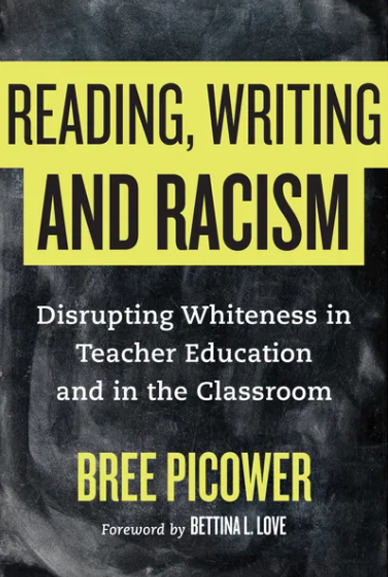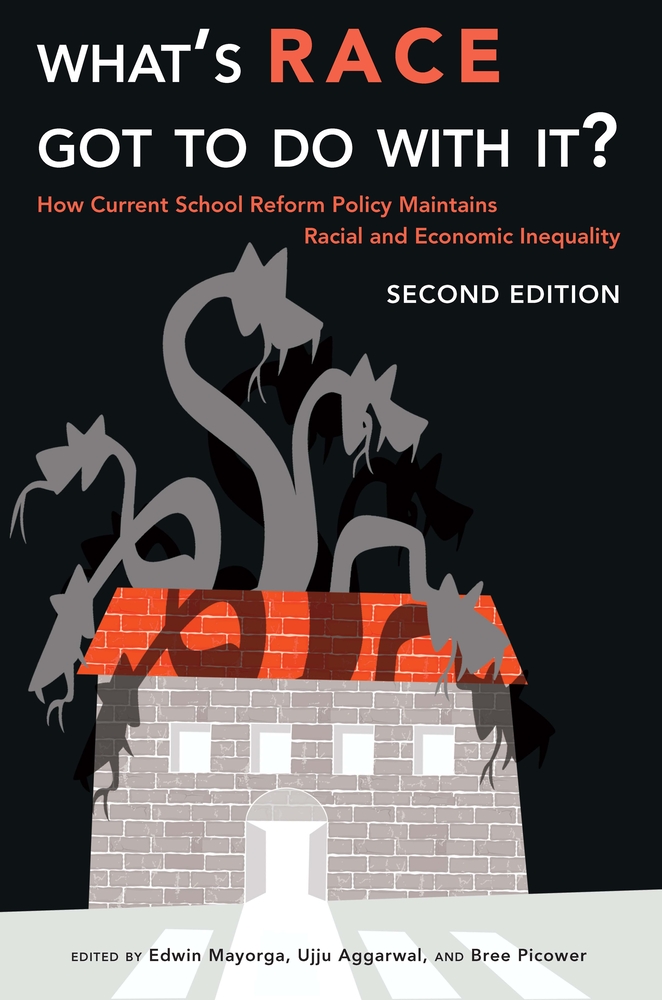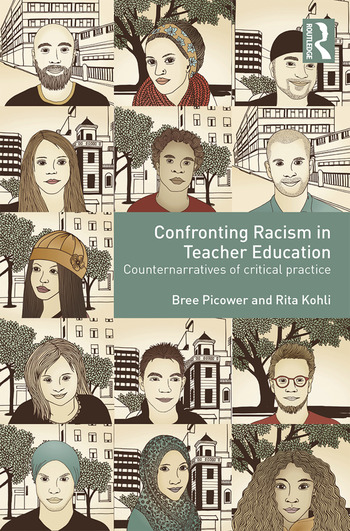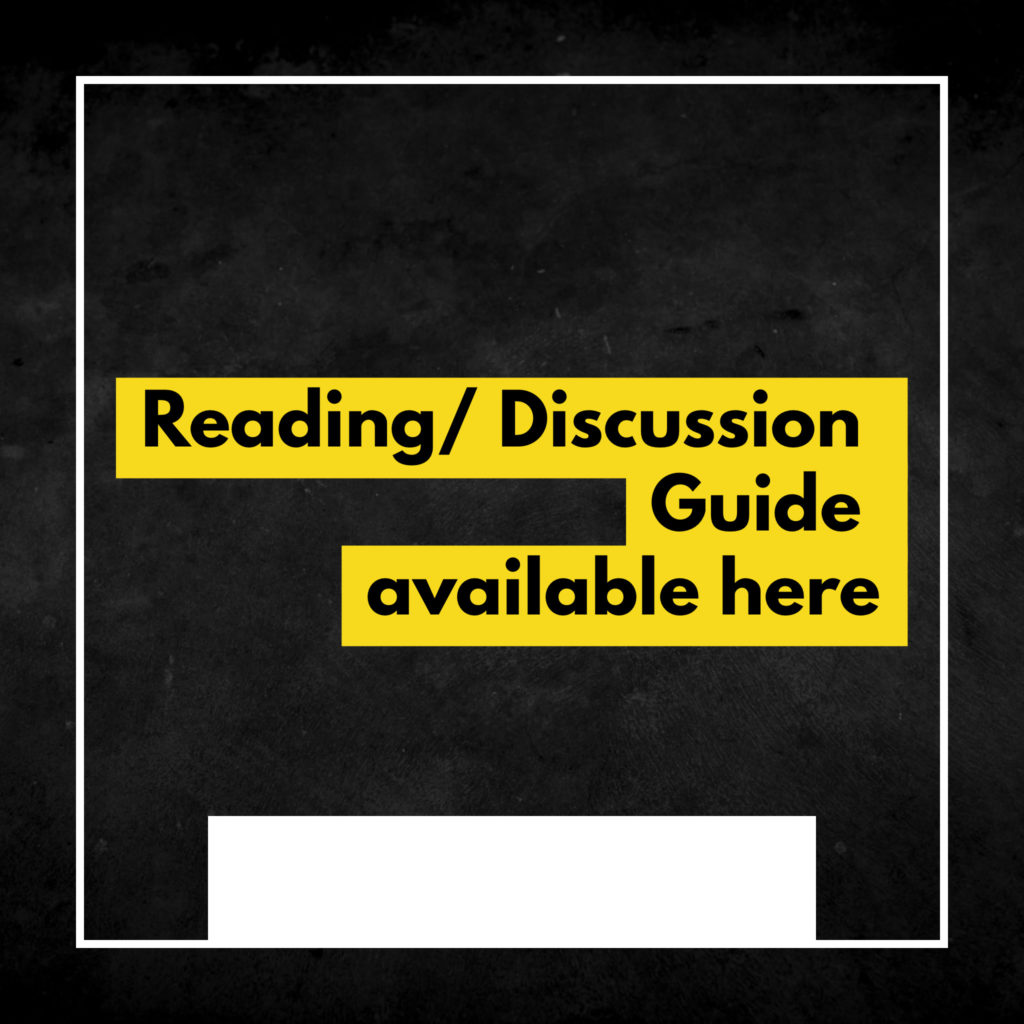Reading, Writing, and Racism
Disrupting Whiteness in Teacher Education and in the Classroom

When racist curriculum “goes viral” on social media, it is typically dismissed as an isolated incident from a “bad” teacher. Educator Bree Picower, however, holds that racist curriculum isn’t an anomaly. It’s a systemic problem that reflects how Whiteness is embedded and reproduced in education. In Reading, Writing, and Racism, Picower argues that White teachers must reframe their understanding about race in order to advance racial justice, and that this must begin in teacher education programs.
Drawing on her experience teaching and developing a program that prepares teachers to focus on social justice and antiracism, Picower demonstrates how teachers’ ideology of race, consciously or unconsciously, shapes how they teach race in the classroom. She also examines current examples of racist curricula that have gone viral to demonstrate how whiteness is entrenched in schools and how this reinforces racial hierarchies in the younger generation.
With a focus on institutional strategies, Picower shows how racial justice can be built into programs across the teacher education pipeline–from admission to induction. By examining the who, what, why and how of racial justice teacher education, she provides radical possibilities for transforming how teachers think about, and teach about, race in their classrooms.
Order Now!
What’s Race Got to Do with It?: How Current School Reform Policy Maintains Racial and Economic Inequality, Second Edition

“The first edition of What’s Race Got to Do With It (2015) addressed a moment when those working on the ground–activists, educators, young people, and families–were trying to understand and fight back against neoliberal education reforms (e.g., high stakes testing, school closings, and charter schools), while uncovering what race had to do with it all in the context of a supposedly post-racial United States. In the years since, the steady and grounded work of social movements has increased the visibility and critique of privatization, market-based reforms, and segregation; demonstrating the interlocking connections between racism and capitalism. In this period we have also seen an intensified attack on public education (alongside other public infrastructures) and a return to a more overt “racism as we knew it.” This new edition of What’s Race continues the examination of neoliberal education reforms as they are being rolled back (or reworked) to track the changes and continuities of recent years–revealing the ways in which market-driven education reforms work with and through race–and share grassroots stories of resistance to these reforms. It is hoped that this new edition will continue to sharpen readers’ analyses concerning what we are working to defend and what we are working to transform, and provides a guide to action that emboldens the collective struggle for justice.” –Bookshop.org
Confronting Racism in Teacher Education
Counternarratives of Critical Practice

“Confronting Racism in Teacher Education aims to transform systematic and persistent racism through in-depth analyses of racial justice struggles and strategies in teacher education. By bringing together counternarratives of critical teacher educators, the editors of this volume present key insights from both individual and collective experiences of advancing racial justice. Written for teacher educators, higher education administrators, policy makers, and others concerned with issues of race, the book is comprised of four parts that each represent a distinct perspective on the struggle for racial justice: contributors reflect on their experiences working as educators of Color to transform the culture of predominately White institutions, navigating the challenges of whiteness within teacher education, building transformational bridges within classrooms, and training current and inservice teachers through concrete models of racial justice. By bringing together these often individualized experiences, Confronting Racism in Teacher Education reveals larger patterns that emerge of institutional racism in teacher education, and the strategies that can inspire resistance.” –Bookshop.org
Practice What You Teach
Social Justice Education in the Classroom and the Streets

“Many teachers enter the profession with a desire to “make a difference.” But given who most teachers are, where they come from, and what pressure they feel to comply with existing school policies, how can they take up this charge? Practice What You Teach follows three different groups of educators to explore the challenges of developing and supporting teachers’ sense of social justice and activism at various stages of their careers: White pre-service teachers typically enrolled in most teacher education programs, a group of new teachers attempting to integrate social justice into their teaching, and experienced educators who see their teaching and activism as inextricably linked. Teacher educator Bree Picower delves into each of these group’s triumphs and challenges, providing strategies and suggestions for all teachers along with her in-depth analysis.
By understanding all these challenges, pre-service and in-service teachers, along with teacher educators, will be in a better position to develop the kind of political analysis that lays the foundation for teacher activism. This timely resource helps prepare and support all educators to stand up for equity and justice both inside and outside of the classroom and offers a more nuanced portrait of what the struggle to truly “make a difference” looks like.” –Bookshop.org






